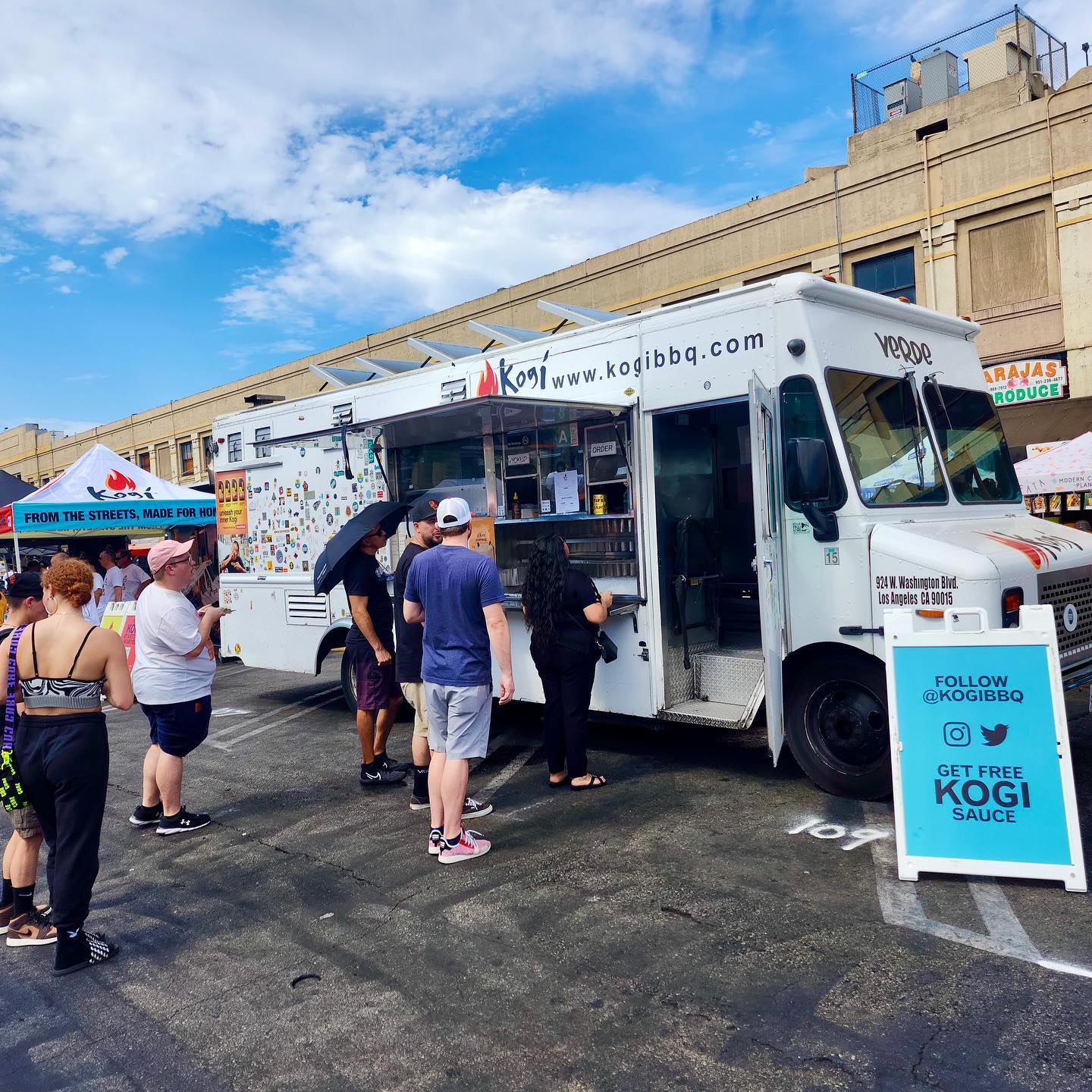
Kogi BBQ
LA's groundbreaking fusion food trucks still roam the streets, offering Korean tacos, sliders, and more
It’s hard to overstate Kogi BBQ’s importance to both the culinary world and the broader American culture surrounding it. Launched in 2008 as a collaboration between Mark Manguera, Caroline Shin, and chef Roy Choi, the original fusion taco truck uniquely combined Korean kalbi meat with Mexican tacos, and leveraged then-nascent social media to attract crowds wherever the truck roamed. While fusion cuisine, food trucks, and social media marketing certainly existed prior to the first Kogi truck’s pop up outside of Hollywood clubs, Kogi served as a powerful demonstration of their potential when deployed together, kicking off a wave of “inspired” iterations.
As Kogi BBQ multiplied from one to multiple trucks with central daily location reporting on a social media channel and website, young chefs with more vision than money began seeing the food truck concept as a playing field leveler, enabling anyone with a culinary dream – even if not particularly one as unusual as “Korean tacos” – to pursue it without needing to find a building to cook in. Kogi inspired literally countless clones around the country, kicking off a food truck revolution that increased access to interesting food in underserved neighborhoods, as well as media coverage and televised competitions.
Before Kogi, “taco trucks” were substantially focused on Mexican or American foods, enabling operators to show up at an office complex or other location, serve lunch, then move along. Many of the trucks that launched in Kogi’s wake enabled their founders to hone new culinary concepts while perfecting the art of quickly serving hungry, waiting customers. Like Kogi, they could operate late into the night outside various nightclubs, or they could test (then demonstrate to investors or bankers) a neighborhood’s appetite for a longer-term venue serving something new during daylight hours.
Kogi BBQ continues to operate multiple roving trucks – currently roja, verde, and rosita colors – as well as a stationary taqueria location in Los Angeles. Our last visit to one of the trucks was at Smorgasburg LA, which chef Choi attended to promote his Kogi line of marinades and sauces, and the tacos remain compelling: they’re still affordable at $3 each (up from $2 as shown in our early photos), and joined by a collection of similar fusion innovations ranging from kimchi or blackjack (onion/spicy pork) quesadillas to calamari tacos and pacman burgers containing all of the truck’s meats. We bought and loved Kogi’s famous short rib and spicy pork tacos – still outstanding after all these years – then picked up a bottle of his kalbi marinade to bring home.
As a thought experiment, just try to imagine what the restaurant world would be like today if Kogi hadn’t sparked the food truck revolution – and forced some long overdue discussions about everything from dining experiences to fusion cuisines and the true value of “authenticity.” So much has changed for the better because of Kogi, and we’re profoundly grateful to its founders for the positive changes they sparked; we only wish there was Kogi representation in Orange County. That said, if you’re in Las Vegas, you can visit Best Friend and the Chef Truck at the Park MGM hotel to get a sense of Choi’s evolution beyond Kogi.
Stats
Price: $
Service: Truck Window
Open Since: 2008
Addresses
Food trucks
Check Instagram for daily locations (LA/SD)
323.315.0253
Instagram: @kogibbq
